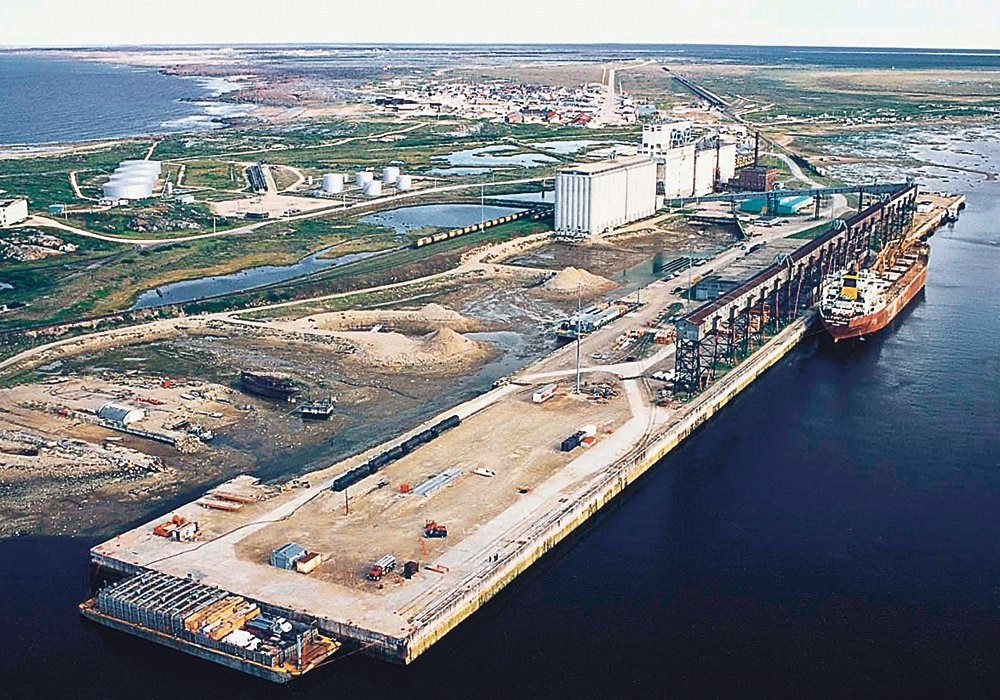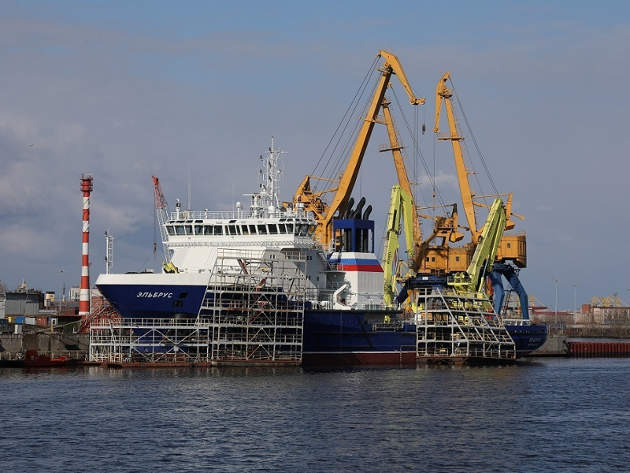- Reaction score
- 27,033
- Points
- 1,360
That why Canada is so serious about battling climate change…it’s all about saving the Churchill Railway from rising ocean levels.Unreliable surface access by rail, for one.

That why Canada is so serious about battling climate change…it’s all about saving the Churchill Railway from rising ocean levels.Unreliable surface access by rail, for one.
You must be from Burlington. It hasn't been called Burlington Bay since 1919! Lol. Language is funny though, I know we golden horseshoe types use the name interchangeably.I've never understood why people want to live along the water in Aldershot...so they can stare at the stacks blenching God know what across Burlington Bay.
Well, there is an advantage. Churchill harbor is going to become a proper deepwater port then...That why Canada is so serious about battling climate change…it’s all about saving the Churchill Railway from rising ocean levels.
Oh, you mean Stelco Bay?You must be from Burlington. It hasn't been called Burlington Bay since 1919! Lol. Language is funny though, I know we golden horseshoe types use the name interchangeably.
I think the permafrost issue is icing on the “remind me why were doing this again” cake.Well, there is an advantage. Churchill harbor is going to become a proper deepwater port then...
I thought the problem with the railway was the northern permafrost issue, where you need to build a high raised burm to run the railway across....

Yup, living in Burlington since 2009. Boring here, but a great place to raise kids.You must be from Burlington. It hasn't been called Burlington Bay since 1919! Lol. Language is funny though, I know we golden horseshoe types use the name interchangeably.
IIRC correctly, the rail line to Churchill is closed for at least this season to do roadbed/rail upgrades.Well, there is an advantage. Churchill harbor is going to become a proper deepwater port then...
I thought the problem with the railway was the northern permafrost issue, where you need to build a high raised burm to run the railway across....
Huh, I grew up in the Hammer and never heard it called anything else.You must be from Burlington. It hasn't been called Burlington Bay since 1919! Lol. Language is funny though, I know we golden horseshoe types use the name interchangeably.
Hey, hey....seeing/feeling that smokey atmosphere just lets me know I'm getting closer to Hutch's. I'd brave Mordor any number of times to pound back a hammer and poutine...Most of my stack plume identification comes from living near Hamilton and seeing what crap the stacks for the harbourside Mordor are spewing out. Lots of it is cooling steam, but lots of it can be classified as "other"....
Two years according to this article, but not closed completely. It sounds like service sufficient to support the town will remain.IIRC correctly, the rail line to Churchill is closed for at least this season to do roadbed/rail upgrades.

 www.westerninvestor.com
www.westerninvestor.com
The ship was stopped, at anchor, for a good amount of those 53 days. Notably while waiting for the fuel that never made it. Icebreaking wasn't all that energy-intensive, as it was pretty light. Only had to ram it a few times, driving through slush and thin ice for most of the time that we weren't in open waters.My eyebrows hit my (receding) hairline with that comment. Cdr Gleason was measured in his words but his demeanor showed how happy he was with this feature. He was very effusive in his praise of the project office for their hard work and understood many of their challenges.
He didn't mention it. Having been on these sorts of sails if they just chugged along with 2DG's at 12kts then that's not a bad speed to go for patrol work. It's likely the most efficient speed for fuel economy as well. I can ask around. I know a few guys.
Reading this brings me much relief.At no time was Cdr Gleason worried about the safety of the ship through the ice they encountered.
Well they're polar class 5+. So it does have its limitations. But yes, pretending that it means that specific seasons are out of the question is a bit absurd, especially given climate change and further recession of the ice sheets.I find it interesting that he neglected to mention the MCDV is ice strengthened and was doing a lot of the representing the Navy in the North. I get the feeling that he is writing it with a "Blue water Navy" background. The AOP's are going to create a significant number of officers with Arctic/ice experience that is going to make the Halifax's and CSC more useful in the North.
Likely we are going to see on average two AOP's in the Arctic each summer, which adds significantly to the 4-6 CCG Icebreakers that are normally there. I don't buy the complaint that they are not "year round icebreakers" Pretty much only the Russians operate true year round capable Icebreakers and they only have a handful of them as well.
Polar 4 bow with 5 hull, which puts them roughly on par with the CCG 1100 class which are no slouches either in ice.The ship was stopped, at anchor, for a good amount of those 53 days. Notably while waiting for the fuel that never made it. Icebreaking wasn't all that energy-intensive, as it was pretty light. Only had to ram it a few times, driving through slush and thin ice for most of the time that we weren't in open waters.
To anyone who hasn't driven a ship into obstacles; yes it feels as totally insane as it sounds. But shit, it works.
Reading this brings me much relief.
Well they're polar class 5+. So it does have its limitations. But yes, pretending that it means that specific seasons are out of the question is a bit absurd, especially given climate change and further recession of the ice sheets.
Shhhh... don't tell the NWO's. That's supposed to be an engineering secret so we have a margin of error in case "we get some buckaroo".Polar 4 bow with 5 hull, which puts them roughly on par with the CCG 1100 class which are no slouches either in ice.
Now that's a phrase you don't hear every day.He was very effusive in his praise of the project office for their hard work
No, you don't. I think he knew just how hard the AOPS team worked to get things where they needed to be despite the challenges from the builder and our own bureaucracies. They were literally breaking the ice for all the follow-on ship projects.Now that's a phrase you don't hear every day.
Iqaluit is getting its new jetty finally sorted out. If Churchill had been viable it would have been viable already. It's cheaper and more effective to refuel ships by sending other ships to meet them in the arctic than it is to detour all the way away from the NWP to Churchill. There is no need to "build stations" when you can be mobile. That's the entire point of the AOPS. It's a mobile "station".

"In case" or "when"?Shhhh... don't tell the NWO's. That's supposed to be an engineering secret so we have a margin of error in case "we get some buckaroo".
I just want to know, did you hear the Scottish when you read "buckaroo"? Lol"In case" or "when"?

